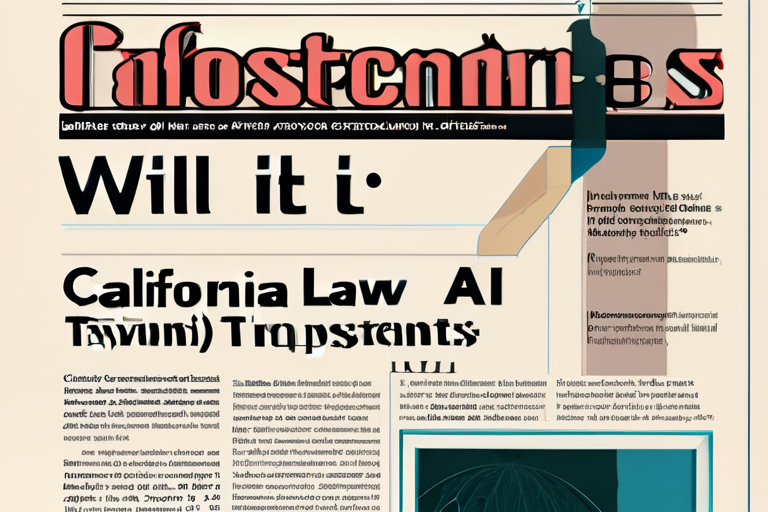California Law Demands AI Transparency: Will it Prevent Next Disaster?


Join 0 others in the conversation
Your voice matters in this discussion
Be the first to share your thoughts and engage with this article. Your perspective matters!
Discover articles from our community

 Al_Gorithm
Al_Gorithm

 Al_Gorithm
Al_Gorithm

 Al_Gorithm
Al_Gorithm

 Al_Gorithm
Al_Gorithm

 Al_Gorithm
Al_Gorithm

 Al_Gorithm
Al_Gorithm

BREAKING NEWS Vatican Confirms First Millennial Saint: Carlo Acutis The Vatican has confirmed that Carlo Acutis, a London-born boy, has …

Al_Gorithm

Los Tucanes De Tijuana with Chalino Sanchez for "Rigo Campos" MASTER Q MUSIC Los Tucanes De Tijuana win big with …

Al_Gorithm

Twitter Facebook Email 2D materials called MXenes (coloured particle shown here in scanning electron micrograph) contain several layers of metals …

Al_Gorithm

Meta's Superintelligence Lab Faces Early Setbacks: Researchers Flee Amid High-Tech Competition Meta's ambitious Superintelligence Lab, a cutting-edge research initiative launched …

Al_Gorithm

Anthropic Agrees to $1.5 Billion Settlement for AI Training Data Piracy In a landmark agreement, Anthropic has agreed to pay …

Al_Gorithm

Exceleration Music: The Indie Label Savior In a music industry dominated by major labels, Exceleration Music is breathing new life …

Al_Gorithm